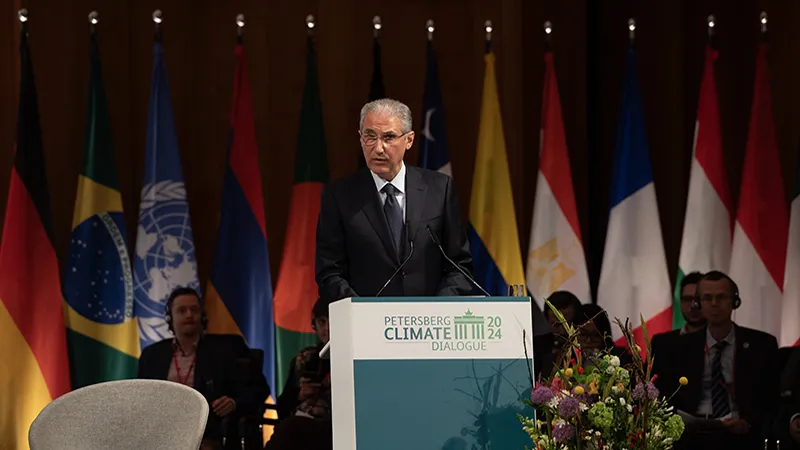As the world moves towards a low carbon economy, demand for so-called transition minerals is rapidly rising.
Electric vehicles, batteries, solar photovoltaic systems, wind turbines and hydrogen technologies all require specific metals like lithium, cobalt and nickel. And they need a lot of them. For example, a basic electric car requires six times more minerals than a conventional equivalent.
Sourcing these minerals, however, presents challenges. Supply is concentrated in a handful of countries including China, Russia and the Democratic Republic of Congo. Geopolitically, this raises major concerns. Today, the safety of supply chains has become a key issue not only for businesses, but also for investors. Increasingly, they are aware that, when it comes to strategic minerals, the concentration of distribution is not linked to supply chain safety.
Consequently, we must take seriously the risk that we end up facing rent-seeking behaviour, or possibly even cartels, around some minerals, where the price demanded will not be a true market price but a ‘managed’ one. That, of course, would have an adverse impact on the profitability of the companies using these minerals in their manufacturing processes.
Balancing act
If supply chains present challenges, the process of mineral extraction itself is problematic. The environmental impacts that mining has on biodiversity and the wider environment are significant. Mining operations are very resource intensive, and they can destroy large areas of land. The way this is managed, now and in the future, is important.
It is a difficult balancing act. In our sustainable investment framework, our notion is ‘do no significant harm’. We want to invest in companies that contribute to social development goals, but we might face a conflict between the ‘E’ and the ‘S’ objectives in ESG.
For example, a renewable energy company may build products that could help accelerate the transition, but its minerals might have been sourced in a way that is inconsistent with human rights. Investing in this area is accordingly a very complicated process, demanding finely balanced judgment calls and intensive due diligence.
Positive engagement
Where companies are found lacking, responsible investors should seek to drive more sustainable practices. Engagement is the key tool here, but it is important to be pragmatic and positive rather than confrontational.
The big danger is that asset managers and the wider industry end up punishing companies simply for disclosing information. A company using minerals might be tempted to stay silent about their provenance as they know transparency carries a degree of risk.
But nothing can change for the better without visibility over the operational realities. Only when investors know what is really going on can companies be nudged towards better sourcing and more sustainable practices.
Help here is required. Responsible investment can achieve much, but government regulation should play a substantial role. If companies everywhere are compelled to disclose information, the punishment bias they face today would be eradicated; thus efforts to drive improvements would be better informed, targeted and effective.
Investment
While regulatory intervention will help, the current general financial environment is to some extent impeding progress. For example, recycling has many benefits. It reduces the demand for resource extraction and develops more circular business models, however faces regulatory and political challenges. We have seen start-ups with the technology to better recycle transition minerals struggle to grow, as they lack the financing and capital investment to scale-up. That speaks to a general reduction at the aggregate level in the amount of investment in these areas.
As an industry, we need to consider what we want to achieve. Culturally, there is ‘newness’ bias towards big new projects that capture the imagination. But if we really want to move towards a greener economy, we need to accept that it might be better to persist with a more subtle approach.
Grounds for optimism
The challenges posed by tackling climate change can cause pessimism, but there are very strong grounds for optimism. ESG frameworks are helping to highlight risks and guide meaningful engagement.
Indeed, more awareness of the issues surrounding transition minerals means it is increasingly a mainstream topic. We are already dealing with very down-to-earth concrete issues, not abstract problems.
A decade ago, the technologies we now take for granted sounded like science fiction. Look at electric cars. We must accept that as things change, our job as responsible allocators of capital get more complicated. But as transition minerals demonstrate, these are, in the end, good problems to have.
This story first appeared in our sister publication, PA future.





